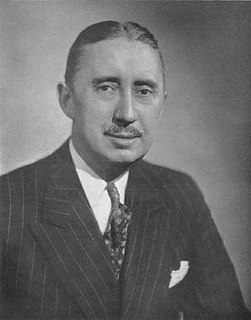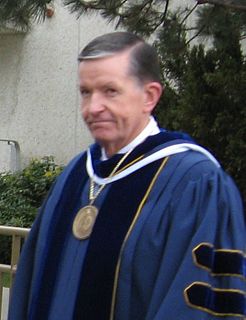A Quote by William Dean Howells
I know, indeed, of nothing more subtly satisfying and cheering than a knowledge of the real good will and appreciation of others. Such happiness does not come with money, nor does it flow from fine physical state. It cannot be brought. But it is the keenest joy, after all; and the toiler's truest and best reward.
Related Quotes
Happiness is a state of non-contradictory joy--a joy without penalty or guilt, a joy that does not clash with any of your values and does not work for your own destruction, not the joy of escaping from your mind, but of using your mind's fullest power, not the joy of faking reality, but of achieving values that are real, not the joy of a drunkard, but of a producer.
Remember. You are a physician. You are not a policeman nor are you a minister of religion. You must take people as they come. Remember, too that though you will generally know more about the condition than the patient, it is the patient who has the condition and this if nothing else bestows on him or her a kind of wisdom. You have the knowledge but that does not entitle you to be superior. Knowledge makes you the servant not the master.
Great master Lao Tzu says that 'The Master has no possessions. The more he does for others, the happier he is. The more he gives to others, the wealthier he is.' Giving is indeed a very good source of happiness! One of the best treasures a man can give to someone is a good and sound idea; because birds can ascend into the sky only with wings, and men, only with good and sound ideas!
Another strange notion pervading whole peoples is that the State has money of its own; and nowhere is this absurdity more firmly fixed than in America. The State has no money. It produces nothing. It existence is purely parasitic, maintained by taxation; that is to say, by forced levies on the production of others. 'Government money,' of which one hears so much nowadays, does not exist; there is no such thing.
Meditative state is the highest state of existence. So long as there is desire, no real happiness can come. It is only the contemplative, witness-like study of objects that brings to us real enjoyment and happiness. The animal has its happiness in the senses, the man in his intellect, and the god in spiritual contemplation. It is only to the soul that has attained to this contemplative state that the world really becomes beautiful. To him who desires nothing, and does not mix himself up with them, the manifold changes of nature are one panorama of beauty and sublimity.
The world where you would go hand in hand with the flower maiden has neither perfect happiness nor joy nor life. This is because it also does not contain perfect sadness nor misery nor death. What lies in waiting is a paradise for wolves alone, the unclean humans are no more...come with me Cheza, it is time.
The most valuable thing a teacher can impart to children is not knowledge and understanding per se but a longing for knowledge and understanding, and an appreciation for intellectual values, whether they be artistic, scientific, or moral. It is the supreme art of the teacher to awaken joy in creative expression and knowledge. Most teachers waste their time by asking questions that are intended to discover what a pupil does not know, whereas the true art of questioning is to discover what the pupil does know or is capable of knowing.
Our Creator has put in us hungers that this earth can- not satisfy. We cannot be completely self-contained on earth. Physical sense cannot give us a full life, nor can knowledge alone. No life is full unless it is linked to some- thing that goes on after we are dead.... If we have nothing more to live for than just to get ahead in a competitive system, then democracy will go down before other philosophies.
Grace does not demonize our desires nor destroy them nor lead us to deny them. Grace is the work of the Holy Spirit in transforming our desires so that knowing Jesus becomes sweeter than illicit sex, sweeter than money and what it can buy, sweeter than every fruitless joy. Grace is God satisfying our souls with His Son so that we're ruined for anything else!
When we begin to understand the magnitude of [the Messiah's] sacrifice and service to us individually and collectively, we then cannot consider anything else to be of more importance or to approach His significance in our lives. "For most of us, this understanding does not come all at once and likely will not be fully complete during our mortal sojourn. We do know, however, that as we learn line upon line, our appreciation for the Savior's contributions will increase and our knowledge and assurance of their truthfulness will grow.
Are our ways of teaching students to ask some questions always correlative with our ways of teaching them not to ask - indeed, to be unconscious of - others? Does the educational system exist in order to promulgate knowledge, or is its main function rather to universalize a society’s tacit agreement about what it has decided it does not and cannot know?
Knowledge is power." Rather, knowledge is happiness, because to have knowledge - broad, deep knowledge - is to know true ends from false, and lofty things from low. To know the thoughts and deeds that have marked man's progress is to feel the great heart-throbs of humanity through the centuries; and if one does not feel in these pulsations a heavenward striving, one must indeed be deaf to the harmonies of life.







































